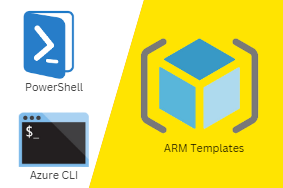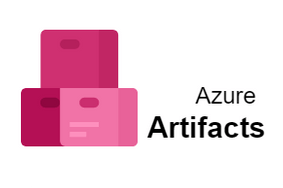With the growing demand of cloud technology, there are many companies looking to hire specialists who have experience administering cloud-based infrastructures. This makes an Azure administrator one of the most in-demand jobs in IT today! In this course, you’ll learn the skills required to become an Azure administrator, including the fundamentals of cloud computing and how it works with Azure, how to monitor and manage virtual machines, how to implement data storage and backups, how to architect and design a solution using Azure services, and how to maintain security and compliance across your entire system through auditing, monitoring, and other Azure services.
Azure Administrator Job Description
The Microsoft Azure team is looking for a motivated and talented software developer who wants to make a mark on one of most high-profile products in our industry. As an Azure administrator, you’ll lead some of our most critical new initiatives, including handling security patches, deploying server updates and performing troubleshooting. You’ll manage many of Microsoft’s largest customers as well as work with some of its largest partners. This is not your typical job—if you love it when things get crazy and if you love a challenge that will keep you up at night, then come help us shape tomorrow’s cloud!
What will I learn?
Administrators manage cloud computing infrastructure, using public cloud services such as Microsoft Azure. These professionals configure, monitor and troubleshoot virtual servers and storage. If you want to become a cloud administrator, you will learn how run applications in Azure and manage security features. You will also learn how to create, upgrade and monitor virtual machines running Windows Server 2016 or Linux distributions such as Red Hat Enterprise Linux (RHEL) or SUSE Linux Enterprise Server (SLES). In addition, you will become familiar with DevOps-style automation using PowerShell scripts. To secure your new skills, you can take Microsoft exams 70-532: Managing Microsoft Windows Server 2016 Infrastructure with Microsoft Intune or 70-533: Managing Microsoft Hybrid Cloud Platform Solutions.
Who is this course for?
Anyone who wants to learn about becoming an Azure administrator. This course is for IT professionals, application developers, and solution architects who need a deeper understanding of how Microsoft cloud services work and how they’re used in enterprise solutions. If you want a career in cloud computing or are managing applications that run on Azure, then completing an Azure certification is essential. This course provides everything you need to begin taking Microsoft’s required exams.
Prerequisites
Familiarity with Windows Server and System Center Operations Manager is a plus, but it’s not required. If you’re new to Microsoft technologies, no worries—we’ll explain everything as we go. You don’t need any of that experience for our first post though. We’ll help you get up to speed quickly so you can start getting real hands-on experience with Microsoft Azure. In fact, if you are a user or system administrator looking for opportunities in IT then a good place to start is by taking these free online courses
Why use this course?
Before you can use cloud services, you have to learn how they work. The why behind cloud computing is security, accessibility and convenience. With advances in technology, it’s easier than ever for hackers to get access to files and databases — so why not give your data away? Cloud storage makes sure that you have a secure place where you can store all of your business’ sensitive information. If a hacker gets into one user’s account, he or she won’t be able to find anything useful in another user’s account. With Microsoft’s cloud, there are multiple layers of security protecting customer data against physical attacks and online intrusions, like phishing scams. In addition, with cloud computing comes seamless mobility and accessibility. No longer do you need desktops or servers; instead, everything works through a Web browser. You don’t even need to worry about hardware failures anymore because everything lives on remote servers. These machines are remotely located at central hubs with many users spread out across multiple locations using specialized software solutions such as Exchange Online (for email), SharePoint Online (for document collaboration) and Skype for Business (for communication). All of these tools make up Office 365, but to understand them completely, take a course in Business Management & Strategy.
AZ-104: Microsoft Azure Administrator Objectives
This exam assesses your ability to implement, monitor, and manage cloud services and infrastructure. It tests your knowledge of fundamental skills for administering Microsoft Azure subscriptions and resources. This exam also covers some basic skills that are required for Microsoft Specialist certification in Cloud Platform, but does not cover all of those skills. These skills include advanced security operations, troubleshooting complex applications, building high availability solutions across multiple datacenters and a thorough understanding of cloud technologies. Exam Prerequisites: AZ-104: Microsoft Azure Administrator: The Fundamentals of Developing Solutions Using Microsoft Azure Expertise or experience in implementing or managing Microsoft services including server infrastructures and identity access management.
Schedule & Expectations
This course will be offered once a week over a three-month period. Here is our schedule for sessions: Monday at 8pm EST, Tuesday at 4pm EST, Wednesday at 11am EST, Thursday at 6pm EST. The entire course will take about three months. You can participate in whichever session you choose; or if you can’t make it to any of them we will also offer recordings of each class on YouTube so that you can review and catch up whenever you want! There will be homework assignments (e.g., watching videos) and quizzes/exams (e.g., short answer questions) every week with feedback provided by me as well as your peers in the class!
Labs, Assignments, Exams & Certifications
Microsoft has created free practice exams and a certification preparation program, or you can get your company involved in Microsoft’s Virtual Academy. Once you know what resources are available, you can start studying for your MCSA: Cloud Platform certification. To keep up-to-date on any new developments in technology, take advantage of Microsoft’s huge network of bloggers and community members. If you have questions while preparing, don’t be afraid to ask others—the more time you spend getting questions answered now, the better prepared you’ll be when exam day comes around. Make sure your certifications have been received before sending out resumes. If they haven’t been received by employers yet, provide them with documentation that verifies that they’re pending and note when they will arrive. Employers who hold off on considering someone based solely on their not having a certification but do want someone with knowledge of their industry might extend a probationary period past one year until after certifications are obtained if there is evidence showing that said candidate is still pursuing it seriously enough (i.e., through passing multiple free exams/labs)



0 Comments